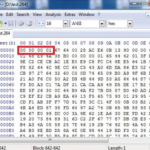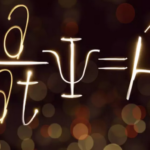The MB Complexity is estimated as MBsize*QP (or more generally Mbsize * QP k, where k>=1 ). This sort of complexity is widely used in Rate Control methods to derive quantization steps.
There are two troubles with this estimation:
- it’s better to use Qstep instead of QP, because the relationship between QP and Qstep in both H.264/AVC and H.265/HEVC is not linear (actually the relation is exponential). Therefore Qstep is more suitable for the MB Complexity estimation instead of QP.
- Due to arithmetic coding (CABAC) the MB length can’t be computed exactly, the MB boundaries are spilled, inexact. There is some similarity with Quantum Mechanics – MB object boundaries are in virtue inexact in the arithmetic coding. For example, a single bit can contain several mb_skip_flags (i.e. the single bit actually contain several MBs). The MB length can be approximated by the binary size, i.e. VLC coded bits (or ‘bins’ in the jargon) before being catered to Arithmetic Engine.
Frame Complexity can be estimated as FrameSize * QPavg , where QPavg is the average QP of the frame.
Alternative frame complexity measure – the percentage of non-zero coefficients. Encode a frame in constant QP and compute the percentage of non-zero coefficients.

23+ years’ programming and theoretical experience in the computer science fields such as video compression, media streaming and artificial intelligence (co-author of several papers and patents).
the author is looking for new job, my resume






